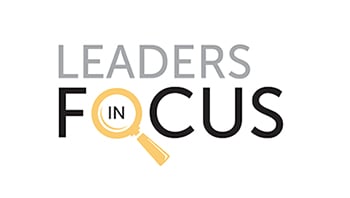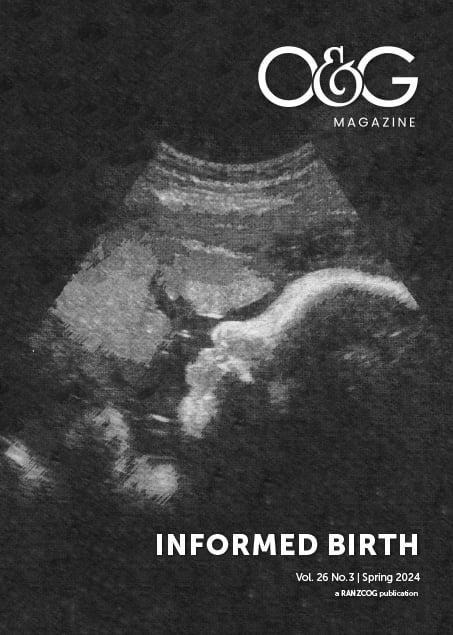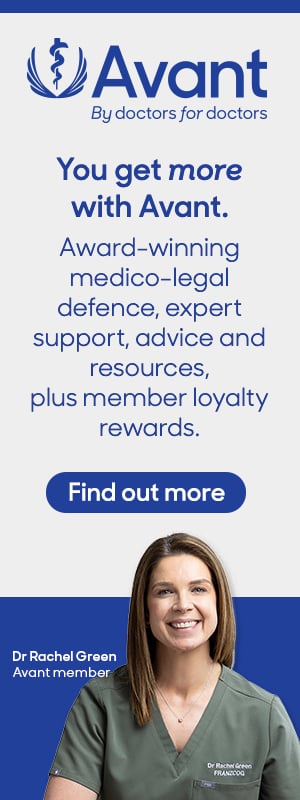This feature sees Paddy Moore in conversation with women’s health leaders in a broad range of leadership positions. We hope you find this an interesting and inspiring read.
Join the conversation on Twitter #CelebratingLeadership @RANZCOG
Professor Susan Walker A.O. is the Head of the Department of Obstetrics and Gynaecology. She is Co-Director of Mercy Perinatal, a three-pillar centre of excellence in clinical care, education and research in high-risk pregnancy, based at Mercy Hospital for Women in Melbourne.
Sue founded the Perinatal Medicine Department at Mercy Hospital for Women, which has flourished into a tertiary referral site for some of the highest risk pregnancies in Victoria. Sue obtained her FRANZCOG and MD in 2000 before completing MFM sub-specialty training in 2004 and undertaking a Maternal Fetal Medicine fellowship at the world leading Mt Sinai Hospital, Toronto in 2007.
In 2011, she was appointed to the Sheila Handbury Chair of Maternal Fetal Medicine, University of Melbourne. In 2018, Prof Walker was awarded Officer, Order of Australia for distinguished service to the field of obstetrics and gynaecology as an academic and clinician, and for her enormous contribution to professional organisations. Sue has developed the Fetal Medicine at Twilight educational series, which attracts a large local audience and is streamed live to sites across Australia and overseas. She instigated the bi-annual Medical Disorders in Pregnancy Symposium. She has been on the organising committees for several national and international conferences and co-directs the annual Global Obstetric Update conferences.
Sue, tell us what attracted you to your field/s of interest?
I came to O&G via a circuitous course, having wandered through my post grad years doing some physician training, then wanted to try General Practice. It was during my Family Medicine Program training that I did a Dip Obs and became hooked. Probably the same way everyone gets hooked, you see someone fantastic, and you want to be like them. For me, that was my first registrar, Tom Manolitsas and the then Head of the General Gynae clinic at Austin hospital, Peter Grant.
After my basic training, I decided to do a Doctor of Medicine. That was the time when I had my first two babies. On finishing my research, I had become invested in high-risk pregnancy and decided to train in maternal fetal medicine – and have my third baby while in training. What was optimistically referred to as the ‘MFM unit’ was actually one outpatient room in the University Unit Antenatal clinic back then. But now it’s the thriving clinical hub of Mercy Perinatal, a terrifically fabulous place to work in the areas of complex maternal medicine, fetal medicine, fetal diagnosis and therapy, prenatal genetics and fetal surveillance.
From very early on in your career you were involved with leadership positions. Was this by design or default?
I honestly don’t know! A bit of both, I think. I do like thinking about people, places, partnerships and problems- how can we make them better? But I was also enormously fortunate to have had people look out for me. There were people who believed in me and who would help identify or create opportunities, encourage me to apply for positions and support me in the ‘what have I done?’ moments. It’s my job now to pay that forward. To look out for others, to teach and mentor them, to ignite a belief in themselves, to create opportunities.
I often think about the see-saw we are perched on in our professional careers, the yin and yang of ambition at one end, and altruism at the other. We need both. We want clinicians and researchers who are hungry for success; we want innovators, designers, dreamers. We want people who have novel thought, big ideas and communicate them well. But we also need clinicians and researchers who are altruistic; who look out for juniors, who are generous, who mentor and sponsor others, who go second last on the paper, who contribute to hospitals and professional societies and communities.
With increasing seniority, these two ends of the see saw come closer together. My ambition, and what success looks like to me now is more tied up in the successes of others. This means looking out for students, junior doctors, midwives, those coming up behind us, providing education and mentorship and support. Creating environments where people feel respected, valued and that they belong. ‘Society grows where old men plant trees knowing they will never sit in their shade.’…and all that.
What are the leadership achievements you’re most proud of and why?
Well, I’m proud of my trainees who pass their exams and go on to become my colleagues. My PhD students who have become independent researchers and remain trusted collaborators. Also, my consultant colleagues who have gone on to become amazing leaders themselves, but still stop by to say hi. I’m proud of the collaborative partnerships we’ve created. I’m proud of the difference we can make in the life of a medical student: when they remember something you said, and it’s been an ‘Aha’ moment for them. I’m proud of the impact we make in the lives of families we care for. I’m proud of Mercy Perinatal and how it’s become a trusted source of engaging and accessible education for maternity care providers everywhere.
You yourself have established a highly successful leadership forum, now in its third year. Can you tell us about this, its origins, what you hoped to achieve from it and insights gained.
Yes, this has been a yearning for me and I’m not quite sure where it came from. But I’ve wanted to create an event that feeds people and fills their cup. Get them out of the weeds and the bone-aching fatigue and bureaucracy, which we all struggle with. Give some practical advice for everyday leaders and create and cultivate a community of practice with some inspiring leaders across all disciplines and career stages.
My daughter is living in London at the moment. Earlier this year, I asked her: ‘Honey, how are your surviving the winter?’ And she said: “Mum, the hardest thing about London in winter is you never see a horizon. The clouds are low, the buildings are high. At home, there are horizons everywhere. I miss them.” And it struck me as such an astute observation. We are all physical and metaphorical horizon seekers. So, this year’s symposium is ‘Horizon Chasing: rediscovering you best life in healthcare’. Come along. Whether your horizon is in your current role, or making change or making a move, let us help!
Do we adequately address leadership skills in our training? Do you have any suggestions for RANZCOG on this?
I think we are moving toward this but could probably do more. Capable clinicians often find themselves in leadership positions, and it’s assumed that ‘you’ll be great at it because you’re a great person and clinician’. And they probably will be. But we could supercharge their performance by upskilling them in leadership specific skills and knowledge. Areas such as finance and how the business of health is done, how to write a business case, change management, leading people, creating and maintaining great workplace culture. There is also the ‘knowing yourself’ piece – dealing with failure, imposter syndrome, bringing your EQ to work.
How would you describe your leadership style?
Well, it’s hard to say. It’s definitely not ‘Leadership of outstanding time management’ or ‘leadership of not taking on too much’. I think my style is more, ‘Come on! Join the circus! It will be fun!’ But perhaps the description of transformational leadership sort of resonates with me, that is gaining the trust and respect of the team, and empowering others, but also being able to inspire and get people on board with a vision.
How do you balance your roles?
I’m writing this at 1.30am. How do you think I’m balancing my roles?!
What forms will your leadership take going forward?
That’s a great question. I’m keen for the ‘what’s next’.
Although I don’t know exactly ‘what shape’ that looks like yet. But I hope I get the chance to grow as a leader. Have an impact. Be both kind and wise. Lead with integrity and humour and equanimity. With the right balance of grit and grace and help others to grow.








Leave a Reply